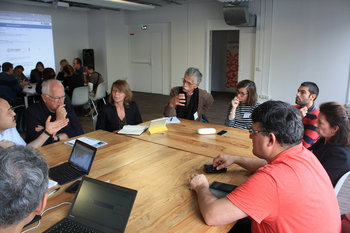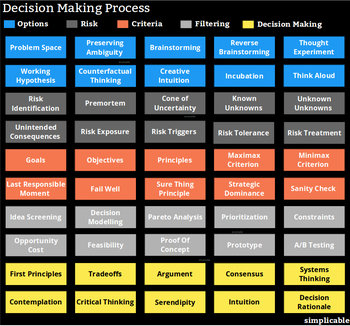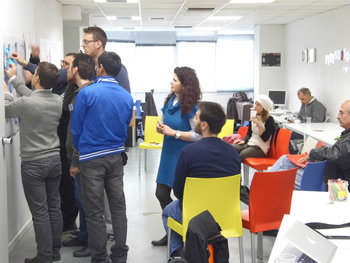|
| |
A wicked problem is a problem that is difficult to solve definitively. This term is usually applied to problems that have resisted intensive attempts at a solution. In some cases, wicked problems have workarounds or solutions that are generally considered incomplete or sub-optimal.
NotesThe term wicked problem evolved out of business operations research in the 1970s to denote problems that were surprisingly difficult to resolve. Wicked problems can occur in any domain. A wicked problem is hard to solve due to factors such as complexity, uncertainty or conflict. ExampleAn environmental problem such as climate change is a wicked problem because it requires the cooperation of many nations to solve. Technically it is a quite simple problem to solve with techniques such as renewable energy, energy efficiency and biochar.|
Type | | Definition | A problem that is difficult to solve due to complexity, uncertainty or conflict. | Related Concepts | |
Thinking
This is the complete list of articles we have written about thinking.
If you enjoyed this page, please consider bookmarking Simplicable.
An overview of problem solving with examples.
A list of thinking approaches and types.
A definition of workaround with examples.
A list of common creative thinking techniques.
A list of common types of problems.
The definition of analysis paralysis with examples.
The definition of the arrow of time with examples.
An overview of common business problems.
The definition of decision framing with examples.
The common types of research.
A list of decision making techniques.
The observation that groups may make collective decisions that are viewed as wrong or irrational by each individual member of the group.
A complete guide to the decision making process.
The difference between rational thought and logic.
The common types of uncertainty in decision making and strategy.
A definition of information costs with examples.
A definition of reverse brainstorming with examples.
The definition of decision fatigue with examples.
Taking a position that you do not necessarily agree with for the purposes of argument.
The definition of paradox of choice with examples.
TrendingThe most popular articles on Simplicable in the past day.
Recent posts or updates on Simplicable.
Site Map
© 2010-2023 Simplicable. All Rights Reserved. Reproduction of materials found on this site, in any form, without explicit permission is prohibited.
View credits & copyrights or citation information for this page.
|
































